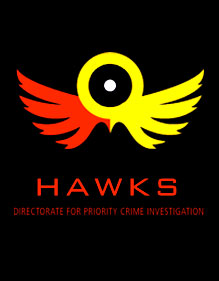
This reminded me of the investigations carried out by the Hawks (and before that by the Scorpions) into corruption and organised crime. A number of the people who were investigated are part of the executive, which seems problematic. What is the appropriate relationship between the leaders of the executive and the criminal justice institutions?
Yours,
Arresting Concerns
Dear Arresting Concerns
In terms of the constitution, the South African Police Service is placed under the control of the executive branch of the government. The executive creates policing policy and a cabinet member is made responsible for policing. On the other hand, the constitution itself tasks the police with preventing, combating and investigating crime.
This is where the problem arises. How are the police meant to investigate high-level political corruption when the very politicians who may be under investigation control them? Such investigations could well be subject to political interference.
This concern is not limited to South Africa. In most countries the police force and other investigative bodies are highly centralised, hierarchical structures that report at the final level to a minister of justice. In such systems there is always a risk that individuals will abuse the chain of command to interfere in crucial operational decisions such as the commencement, continuation and termination of criminal investigations and prosecutions.
This risk is primarily addressed by ensuring that the anti-corruption body is independent – that is, shielded from undue political interference. The South African government adopted and implemented this approach early on by creating an independent, specialised anti-corruption unit called the Scorpions. However, in 2009 the Scorpions were disbanded and replaced by the Hawks. This sparked a great deal of controversy. Many alleged that the Hawks were vulnerable to political interference and powerless to pursue high-level corruption.
In Glenister II – the case businessman Hugh Glenister brought to reinstate an independent corruption-fighting unit – the Constitutional Court considered these allegations. The majority stressed that the state has a constitutional obligation to establish and maintain an independent body to combat corruption and organised crime. It went on to hold that the Hawks lacked this necessary structural and operational independence.
The court's reasons provide assistance in answering your question. It held that the Hawks were not adequately independent because:
- The members appointed to the Hawks enjoyed little if any job security. The absence of specially secured conditions of employment is undesirable because it may dissuade investigators from reporting undue interference for fear of retribution;
- The appointment processes and conditions of service of members of the Hawks were not sufficiently shielded from political interference: levels of remuneration were subject to change and the grounds for dismissal were flexible and did not rest on objectively verifiable grounds such as misconduct or ill-health; and
- A ministerial committee, made up of at least five cabinet ministers, was granted the power to issue guidelines in respect of the functioning of the Hawks and for the selection of national priority offences to be pursued by the Hawks. The power to issue such guidelines offered significant room for interference.
What is required of the executive's relationship with anti-corruption units is not insulation from political accountability, but insulation from a degree of management by political actors that threatens to stifle the independent functioning and operations of the unit.
• This article was first published in Sunday Times: Business Times

